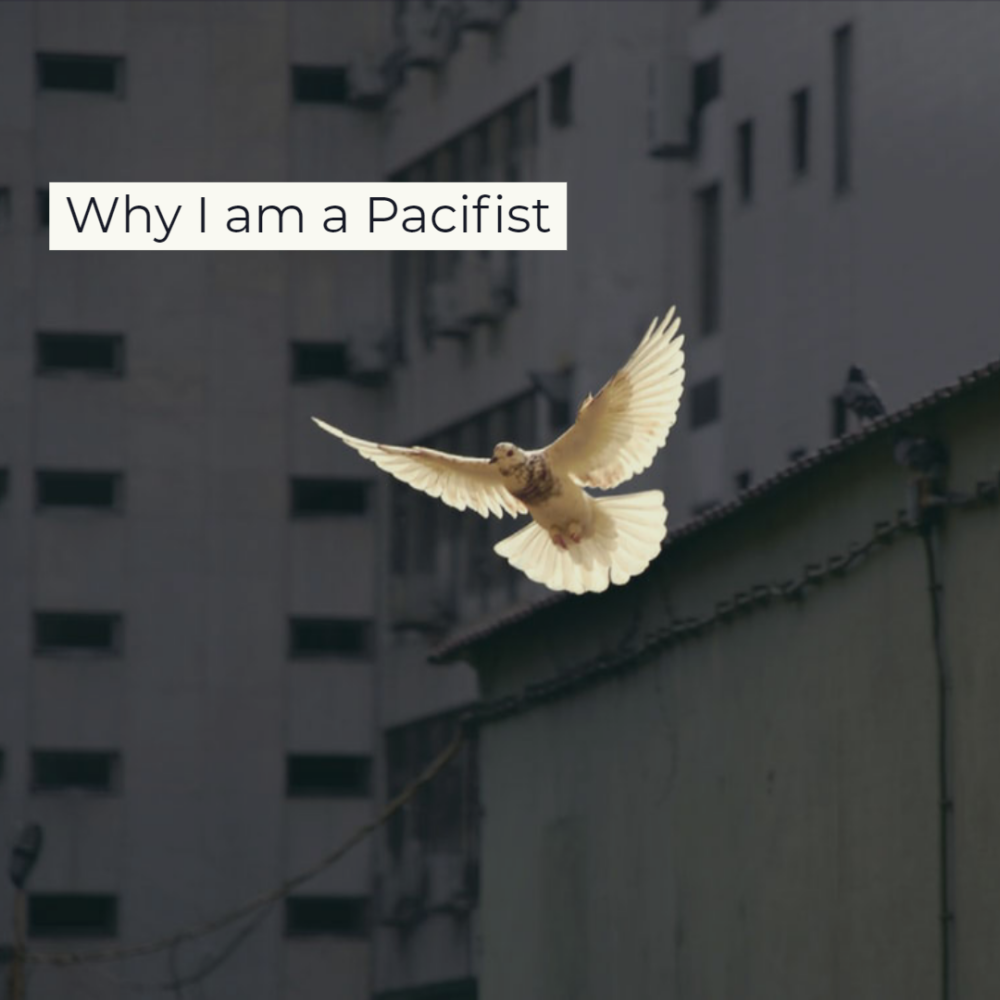
If the pilgrim’s path is never easy, how does the pacifist fare? Tim Gee is a respected UK human rights activist and author of Counterpower: Making Change Happen (2011) and You Can’t Evict an Idea (2013). In this new book, a personal reflection of how he defines and interacts with the world as a pacifist, Gee continues his interrogation of strategies to win meaningful change without violence. Introductory remarks offer readers a short rudimentary history of the Religious Society of Friends and the principles for which it is known internationally.
In the first chapter the author evaluates his not-always-successful attempts to disengage himself from acts of physical and verbal violence during his early school years where teasing, forms of bullying, and peer pressure were present. Gee’s didactic tale invites readers to reflect on how they themselves might have reacted to similar school-day contests and the influence those formative years exerted later on their spiritual path toward pacifism. With respect to Quaker testimonies about peace, the labors of Margaret Fell, George Fox, and Sylvia Pankhurst are assayed, as are the Lamb’s War project and the stance of Martin Luther King Jr. and Bayard Rustin.
Gee argues that each one of us has a role in developing circumstances where peace can flourish.
Culture shapes language, which in turn shapes the way we think and the decisions we make. That we speak of ‘nonviolence’ reveals that within our culture, violence is the norm. We do not refer to war as ‘nonpeace’ . . . A commitment to peace encompasses a commitment to equality, economic justice and environmental protection.
While acknowledging that Quaker pacifism is rooted in spirituality, Gee contends that pacifism and the trials of the pacifist are misunderstood, i.e. pacifism is not a repudiation of conflict.
Subsequent chapters take up the evils of war and the many pathways to peace. To support his thesis that pacifism is active (not passive) work and that pacifists are earnestly engaged in challenging the prevailing stereotypes about pacifism, Gee draws on a variety of sources to demonstrate the effectiveness of nonviolent approaches to (re)solve world problems. In chapter 3, “Thou shalt not kill,” Gee debunks the “Just War Theory” that Thomas Aquinas updated and popularized in the thirteenth century and which is still invoked today. Since “a just war . . . implies God’s blessing,” Quakers seek the inner light and ponder what would Jesus do. Nonviolence, as reflected in the exemplary people power campaigns of Gandhi, Cesar Chavez, and Greenpeace, functions best when—through a structural critique—it devises a viable alternative to war and racial injustice: “To the extent that the use of nonviolent strategy did not result in everything the movement worked for, violent tactics did not achieve those objectives either.”
Even climate change, whose global effects are not distributed equally, signals “an intensification of the violence of inequality.” To his credit, Gee cites how nonviolent movements and Quakerism have been harmed by misogyny and a disregard for gender equality. While he does not equate pacifism with socialism, Gee asks us to consider that the mostly leftist leanings of pacifists do not translate into the left being singularly pacifist. The case of Quaker activist Nozizwe Madlala-Routledge’s membership in the African National Congress and South African Communist Party is illustrative of the political elasticity of pacifists who “can participate in movements that have both nonviolent and armed components.”
Following musings on genocidal crimes and the success rate of civil resistance worldwide, Gee serves up anecdotes (“But what would you do if . . .?”) about nonviolent stands that ordinary citizens (not necessarily declared pacifists) have taken victoriously to thwart acts of violence directed toward them. Gee concludes that the presence of God within directs his testimony and, through practice, paves the path for peace within us all. Pacifism, as a moral doctrine, and the principles that frame it are, for Gee, part and parcel of his non-negotiable spiritual journey.